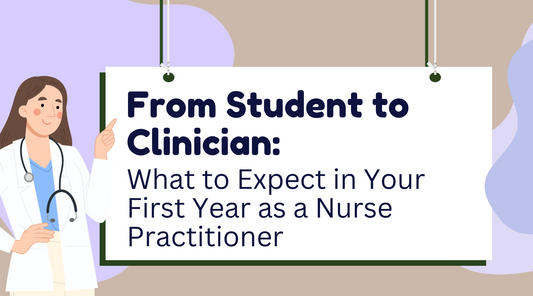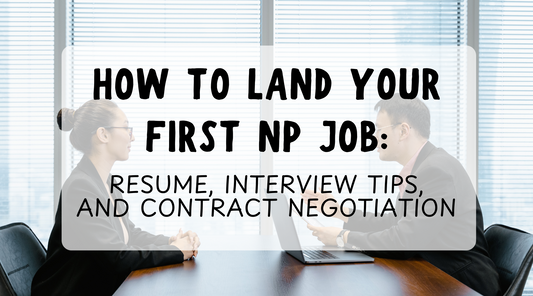Becoming a Nurse Practitioner (NP) is an exciting and rewarding journey, but it’s not without its challenges. When I first decided to pursue my NP degree, I had a general idea of what to expect—rigorous coursework, clinical rotations, and the eventual privilege of providing high-quality care. But despite all the research, there were things I wish I had known before diving in. In this post, I’ll share 10 lessons I learned along the way that could have made my journey smoother, and I hope these insights will help anyone considering or already enrolled in NP school.
1. It’s Not Just About Patient Care—It’s About Navigating Complex Systems
When you work as a registered nurse (RN), your focus is primarily on direct patient care. You’re used to managing a patient’s day-to-day needs—medications, procedures, and assessments. But as an NP, you’re expected to make high-level clinical decisions, manage patient outcomes, and, in many cases, juggle administrative and system-level tasks.
In my first semester, I was caught off guard by how much of NP school was dedicated to understanding healthcare systems, policy, billing, and the business side of medicine. We delved into concepts like reimbursement, legal issues, and evidence-based practice guidelines—things I hadn’t considered before. I had always thought of the NP role as primarily about patient care, but I quickly realized that I’d need to become familiar with the healthcare system as a whole.
This shift in focus can feel overwhelming, especially if you’re someone who prefers the hands-on aspects of nursing. But with time, I came to appreciate the complexity of managing patient care within the broader healthcare system, and how important it is to advocate for your patients both in and out of the clinic.
2. You Will Feel Like an Imposter—And That’s Normal
Imposter syndrome is real, and it will likely creep up on you more times than you’d like to admit. In the beginning, I felt like I wasn’t ready to be an NP. After years of providing patient care as an RN, it seemed like I was suddenly expected to diagnose, treat, and prescribe. It felt like I was walking into every class and clinical rotation underprepared, even though I had years of nursing experience under my belt.
I wish someone had told me that feeling like an imposter is completely normal. In fact, almost every NP student feels that way at some point. I had to remind myself that becoming an NP is a process. You don’t have to have all the answers from the start. With time, education, and practice, I slowly built my confidence. There will be moments where you feel unsure, but trust the process and know that you’ll grow into the role.
3. Clinical Rotations Are Invaluable, But They Can Be Intense
One of the most rewarding parts of NP school is the clinical rotations. I had the opportunity to observe and work alongside experienced NPs, physicians, and specialists. However, these rotations are not without their challenges.
During my first rotation, I was both excited and terrified. I was eager to apply the theoretical knowledge I had gained in the classroom, but when it came time to actually see patients, I was overwhelmed by how quickly I needed to think on my feet. You’re expected to observe, assess, and make recommendations—sometimes all in a single visit. I remember shadowing an NP in a busy urgent care setting, and realizing just how much autonomy and decision-making was involved. It was exhilarating, but there were days when I walked out of the clinic feeling like I had a lot more to learn.
My advice: Don’t shy away from difficult cases. Push yourself to ask questions, practice your assessments, and use every opportunity as a learning experience. But also, give yourself grace—this is a learning process, and it’s okay to make mistakes along the way.
4. The Workload Is More Than You Expect
When I first started NP school, I had a rough idea of the workload. I’d heard stories of long nights spent studying, but I didn’t realize just how all-consuming it could be. Between lectures, assignments, case studies, and exams, I found myself feeling like I was constantly playing catch-up.
I wish I had been more prepared for how much time it would take to manage both school and life outside of it. Balancing studying with personal time and work was incredibly challenging. In the beginning, I struggled to keep up with the demands, but over time, I learned how to manage my time more effectively. I had to prioritize, stay organized, and most importantly, be okay with not being perfect.
I recommend setting realistic expectations. You will need to dedicate significant time and effort to your studies, but don’t forget to take care of yourself. Whether it’s taking a break to go for a walk or scheduling time to catch up with family and friends, balance is key.
5. You Will Need a Strong Support System
I can’t stress enough how important it is to have a solid support system in place while you’re in NP school. The emotional and mental toll can be overwhelming, and having people to lean on makes all the difference.
For me, my support system included my family, friends, and fellow NP students. We leaned on each other during tough exams, clinical rotations, and moments of self-doubt. There were times when I felt like giving up, but my family reminded me of why I started this journey in the first place. My classmates and I shared notes, vented about the stress, and celebrated our wins together.
If you don’t have a built-in support system, I highly recommend connecting with others in your program or online forums. NP school can be isolating at times, and it’s important to have people who understand what you’re going through.
6. You Will Never Stop Learning
NP school is just the beginning of your lifelong learning journey. As you transition from school to practice, you’ll realize that there’s always something new to learn. The medical field is constantly evolving, and as a healthcare provider, it’s crucial to stay up to date on new treatments, procedures, and technologies.
After I graduated, I was surprised at how much I still needed to learn on the job. Even after all those hours of clinical practice and coursework, real-world scenarios often present unique challenges that can’t always be prepared for in a textbook. Continuing education and professional development will become a regular part of your career, and you’ll quickly realize that learning doesn’t end once you graduate.
7. You Will Have to Advocate for Yourself
As an NP, you’ll be expected to practice with autonomy, but that doesn’t mean you won’t face challenges in terms of gaining respect and navigating workplace dynamics. I had to learn how to advocate for myself, both as a student and as a new NP.
In clinical rotations, I occasionally encountered situations where my authority as a student or new NP was questioned. It was uncomfortable, but I quickly learned that advocating for myself, being assertive, and clearly communicating my role was important. This skill has carried over into my practice today, where I continue to advocate for myself as I take on more responsibilities.
8. You Will Have to Make Sacrifices
NP school will require sacrifices, and it’s important to be prepared for this. Whether it’s missing out on family events, skipping a vacation, or cutting back on social activities, the demands of school can require you to put personal plans on hold.
There were times when I missed important events in my family’s life because I had to prioritize studying or attending clinical rotations. And while this is a normal part of pursuing a higher degree, it can take an emotional toll.
If you have a partner, family, or friends, have open conversations about what to expect during your NP journey. Managing expectations and being transparent will help reduce some of the strain that may arise.
9. The Transition from Experienced RN to Novice NP is Tough
After graduation, there’s a transition period where you’re expected to apply everything you’ve learned to real patient care. This transition can be intimidating, and it’s normal to feel overwhelmed. I had a difficult time trusting my decisions, even though I knew I had been well-prepared in school.
One thing I wish I had known was how important it is to have a strong preceptorship or mentorship in your first year as a new NP. Working alongside an experienced NP or physician will make a world of difference. They can guide you, offer feedback, and help you build confidence in your practice.
10. It’s All Worth It
There will be moments when you question whether the late nights, stress, and sacrifices are worth it. But when you finally hold that NP degree in your hands and start providing patient care as an advanced practice provider, you’ll realize that every challenge was worth it. The ability to make a real difference in your patients' lives is a privilege that outweighs any difficulty along the way.
Becoming an NP is not an easy journey, but it’s one of the most rewarding paths you can take in healthcare. So, take a deep breath, trust the process, and know that the road you’re on is leading you toward something incredible.
Remember, it’s okay to feel overwhelmed, and it’s okay to not have everything figured out. The important thing is to keep moving forward, knowing that the hard work and dedication will pay off in the end.



